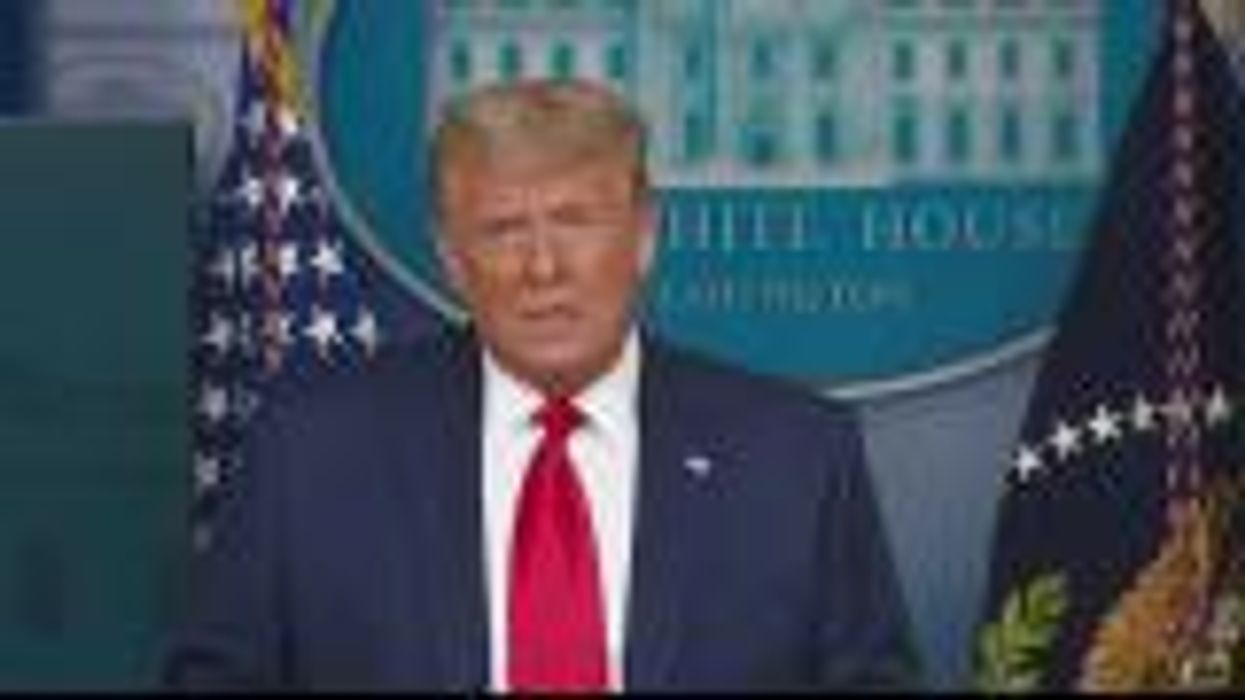Ariana Baio
Jun 24, 2022
January 6 hearing: Panel hears of Trump's pressure on Justice Department
Video
Thursday afternoon the House Select Committee held its fifth public hearing regarding the January 6th attack on the Capitol this time focusing on former president Donald Trump's effort to pressure the Justice Department to overturn the election.
These findings are a continuation of the fourth hearing where the committee outlined the ways Trump pressured former Vice President Mike Pence and state legislators.
Sign up for our free Indy100 weekly newsletter
Here are the three main takeaways from the fifth hearing.
Trump pushed the Justice Department to investigate voter fraud conspiracy theories
Former acting Attorney General Richard Donoghue testified in-person that the Justice Department and FBI investigated multiple allegations of voter fraud that Trump and other White House officials brought up to the DOJ and found nothing.
Most of the allegations stemmed from Internet conspiracy theories. These ranged from an immigration and customs agent seizing a truckload of shredded ballots to an Italian satellite switching votes from Trump to Biden.
Donoghue referred to the Italian satellite theory as "pure insanity".
\u201cPresident Trump and Rudy Giuliani pressured the DOJ to investigate the internet conspiracy that Italian satellites had changed votes. It was "pure insanity," Donoghue said. \n\nFrom today's Jan. 6 committee hearing:\u201d— VICE News (@VICE News) 1656017960
Despite there being no evidence of mass voter fraud, Donoghue testified that Trump continued to push the DOJ to investigate these theories.
At one point in December 2020, Trump requested the DOJ and Department of Homeland Security (DHS) to seize voter machines. Even when Trump was told there was no warrant in seizing the voter machines he persisted.
Trump allies even went as far to draft executive orders demanding the DHS and military seize voting machines however, Trump never signed them.
Trump wanted to replace the acting attorney general with Jeffrey Clark
The committee provided evidence indicating Trump wanted to, and almost, replaced acting Attorney General Jeffrey Rosen with Clark, a DOJ environmental lawyer. Clark was willing to jump on board Trump's plan to pressure state officials to overturn election results.
Part of the plan included sending a letter to state officials in Georgia pressuring them to overturn the election by falsely asserting the DOJ had evidence of voter fraud.
Other officials in the DOJ, and Trump's lawyers, were so appalled by the plan to send letters lying to state officials that Eric Herschmann, a former White House lawyer testified he told Clark he would be committing a felony.
\u201cFormer Trump White House lawyer Eric Herschmann on Jeff Clark\u2019s plan to overturn the election:\n\n"Congratulations, you just admitted your first step or act you would take as Attorney General would be committing a felony..."\u201d— January 6th Committee (@January 6th Committee) 1656013574
Additionally, Rosen testified that Trump threatened to fire him and replace him with Clark after becoming frustrated with Rosen's refusal to go along with the election fraud lie.
The former acting attorney general noted the only reason Trump did not appoint Clark was because Rosen told Trump if he made the move many other DOJ officials would resign in a heated Oval Office meeting.
Several congresspeople sought pardons following January 6
Following January 6th, several GOP congresspeople who had allied with Trump and pushed the narrative of the stolen election sought pardons from Trump according to the committee.
This included Rep. Matt Gaetz (R-FL) who witnesses testified requested a blanket pardon as early as December 2021.
Other people who expressed interest in pardons were Rick Perry, Rep. Andy Biggs (R-AZ), Rep. Mo Brooks (R-AL), and more.
"The only reason I know to ask for a pardon is because you think you've committed a crime," committee-person Kinzinger (R-IL) said after showing several testimonies from White House staff.
The sixth January 6th hearing is set to occur sometime in July. It is unclear if the sixth will be the final hearing as the committee announced earlier this week they had received new evidence.
Have your say in our news democracy. Click the upvote icon at the top of the page to help raise this article through the indy100 rankings.
Top 100
The Conversation (0)














